Department
Programs
Research and Publications
Staff
John Sherwood (HOD)
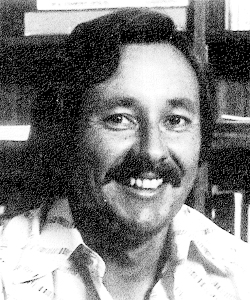 John Sherwood was involved in the Aboriginal Student Teacher Intake (ASTI), the first Aboriginal Teacher project of its kind in Australia. John realised they had to get a group of Aboriginal students entering and studying together to combat the isolation problem Aboriginal students had encountered in the past resulting in withdrawal. With a support system established, assistance could be given not only to the individual students, but the group could supply its own mutual support system.
John Sherwood was involved in the Aboriginal Student Teacher Intake (ASTI), the first Aboriginal Teacher project of its kind in Australia. John realised they had to get a group of Aboriginal students entering and studying together to combat the isolation problem Aboriginal students had encountered in the past resulting in withdrawal. With a support system established, assistance could be given not only to the individual students, but the group could supply its own mutual support system.
With the strong support of Charles Staples as Acting Principal, a submission for a comprehensive Aboriginal Teacher Education Program (ATEP) was undertaken. It funded the employment of six full time staff, the creation of new undergraduate and postgraduate courses, purchases of equipment, frequent travel all over Australia, research, publications, multi-media productions, and involvement of Aboriginal people in all aspects of ATEP.
John Bucknall
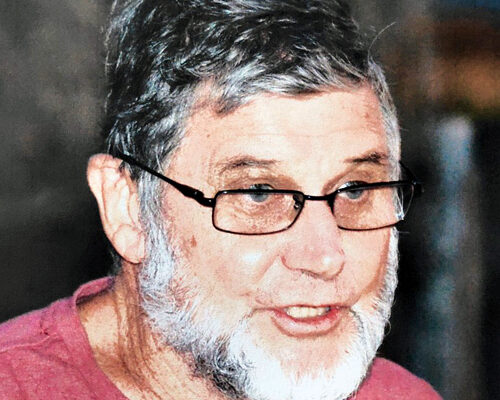 John Bucknell first taught Aboriginal children in Robinvale in 1967. He then taught in North East Arnhem Land at Elcho Island and at Milingimbi, both before and after 1972. He lectured at Mt Lawley, in the area of Aboriginal studies and Aboriginal education in the early 70s.
John Bucknell first taught Aboriginal children in Robinvale in 1967. He then taught in North East Arnhem Land at Elcho Island and at Milingimbi, both before and after 1972. He lectured at Mt Lawley, in the area of Aboriginal studies and Aboriginal education in the early 70s.
“A major thrust behind what we are giving people in Aboriginal Studies is the opportunity to acquire knowledge and skills that will be very
useful to them as service providers,” Mr Bucknall said. “Often we see huge shifts in the attitudes of students studying the courses. Often students will say, “I didn’t know that.”
For 10 years, after this, he was involved in the establishment of the Strelley Community School. Since then, he has been a consultant in Aboriginal Education and Community development. In 1990, he was involved in the setting up of the Aboriginal Independent Community Schools Support Unit.
Carole Reed (Anthropology)
…
Erik Vászolyi
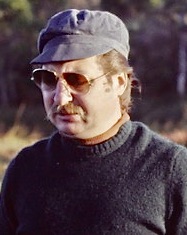
Erik Vászolyi was born on March 24, 1933 in Budapest. He studied Finno-Ugric linguistics, primarily the Komi (Zürjén) language.
In 1968, after the occupation of Czechoslovakia, he emigrated to Australia and worked at the University of WA. He ended up teaching linguistics in the Mount Lawley College of Advanced Education and utilized his knowledge of Finnugristics and general linguistics by studying Australian aboriginal languages.
He became a leading expert in aboriginal languages of Australia. After having worked with various language planning programs and having written several books on aboriginal languages and for aboriginees he retired as a professor of University of Western Australia in Perth in 1995.
Only after the regime change, in the late nineties and early 2000s, did he publish his collections from Komi in several volumes under the title Syrjaenica.
Erik Vászolyi died on April 7, 2013
Ed Brumby
Ed Brumby was a Publications Officer and part-time linguist with the Aboriginal Teacher Education Program at Mount Lawley College of Advanced Education, Perth.
Neil Chadwick
Neil Chadwick was a lecturer in linguistics. His research included a descriptive study of the Djingili language, languages of the Barkly Tablelands, and Ngarnka.
Lois Tilbrook
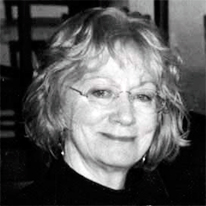 Lois Tilbrook was born in 1943 in the Brunswick area, where she was brought up by her grandmother. SHe attended high school in Collie and went on to complete a degree in anthropology at UWA.
Lois Tilbrook was born in 1943 in the Brunswick area, where she was brought up by her grandmother. SHe attended high school in Collie and went on to complete a degree in anthropology at UWA.
In 1975, she was appointed as a lecturer in Anthropology at MLCAE, which had initiated a a pioneering Aboriginal Teaching Education Program (ATEP). There were also courses for non-Aboriginal education students with Commonwealth Government support.
She undertook a number of projects and published a number of publications including, “Nyungah Tradition”.
Barbara Howard
…
Neville Green
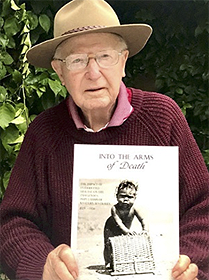 After spending six years in the Royal Australian Air Force in the early 1950s, he decided to become a teacher. Finishing school at 14 meant he had one chance to pass year 12 and begin his journey at Claremont Teachers College, which he did.
After spending six years in the Royal Australian Air Force in the early 1950s, he decided to become a teacher. Finishing school at 14 meant he had one chance to pass year 12 and begin his journey at Claremont Teachers College, which he did.
Pursuing a diverse and fulfilling teaching career, Neville Green spent years in remote Indigenous schools, working with hearing impaired children, before ultimately being offered a position to teach at Western Australia’s first Aboriginal Teacher Education Project based at Edith Cowan University.
His first book, “Desert School,” was published in 1983 and received widespread praise. Dr Green has two PhDs, receiving his second from Murdoch University in 2005. He is a Member of the Order of Australia, recognised for ‘service to the community as a historian specialising in Native title and Indigenous projects, as an author, and to professional associations.’
Since his debut work, he has published 12 more books, sharing the stories of Aboriginal Elders to be passed on for generations to come, exposing the impacts of early settlers and developing reference lists to help identify different communities mentioned throughout history.
Doug Hubble
 After graduating from Claremont College, Doug taught for
After graduating from Claremont College, Doug taught for
a number of years in primary schools in the north of the state, then he spent further years working in the Aboriginal
Education Branch of the Education Department, and in particular, with the Aboriginal teacher development
programs.
He was seconded to the W.A. College in 1978 and has been largely responsible for the development of the external pre-tertiary courses for Aboriginals, and for the feasibility research into, and implementation of, the college’s
off-campus centres for the education of Aboriginal teachers at Broome, Carnarvon and now at Kununurra.
 During his time at the college Doug has continued his studies, firstly completing his Bachelor of Education degree and then a Master of Education degree at the University of Western Australia
During his time at the college Doug has continued his studies, firstly completing his Bachelor of Education degree and then a Master of Education degree at the University of Western Australia
The General Education Certificate (GEC) started in 1981, with Doug Hubble as Coordinator. Doug was involved with creating alternative pathways for Aboriginal people to pursue and education.
Eversley Davies
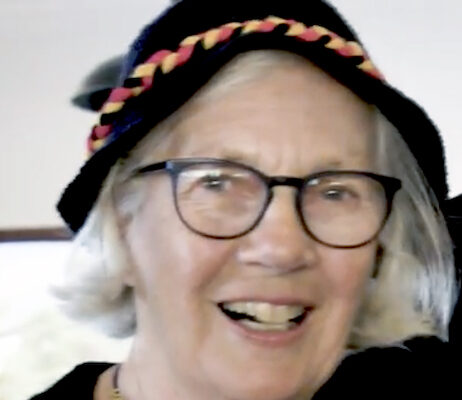
Eversley graduated from UWA with a B.A. in Anthropology and History, added a Dip. Ed., married and went to teach for a year at Sogeri High School in Papua New Guinea. This was followed by several more years teaching in Hobart, before time out to rear three children.
After converting to Early Childhood Education and adding a Masters in Education at Sydney University, she was offered, in 1981, an academic position at the newly formed Aboriginal Teacher Education Program at Mount Lawley College, now ECU. Eversley worked as a Co-ordinator at Mount Lawley College for 3 years between 1978 – 81. This life-changing role led to making a transition to work in community services, mostly in cross-cultural contexts.
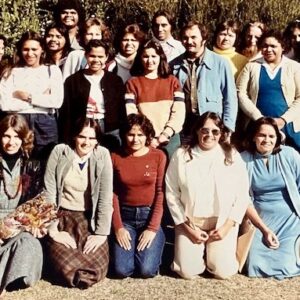
Farewell of Eversley, ASTI co-ordinator 1978-81 (bottom left)
Her roles over the next thirty years included counselling in the Family Court, staff development in the Department of Community Services, managing the Uniting Church’s community services in WA’s North West, working with newly-arrived refugees, and management of non-government organisations in a variety of committee roles. For some decades she also acted as a consultant to community services organisations. Along the way she shared a W.A. Women’s Fellowship Award with fellow graduate Joan
Pope, and published: ‘Divorce: Window on the Gender War’.
On retiring she spent several years in voluntary consultancy roles in the Pacific, before turning to literary and creative projects.
Farewell of Eversley, ASTI co-ordinator 1978-81 (bottom left)
Vic Forrest
Victor Forrest was appointed as Aboriginal Lecturer in Aboriginal Studies in Mount Lawley CAE, the first such position in any higher education institution in WA, and one of the very first in Australia.
Rob Mykytiuk
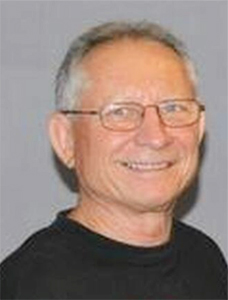
“I was born in the Migrant Refugee Camp in Northam in 1950, and was raised as bilingual/bicultural, Ukrainian/English. I became a teacher after graduating from Claremont Teachers college in 1971. I assisted students with poor English literacy in their science studies, and out of school hours taught Ukrainian and did youth work. At La Salle College Midland, while Coordinator of Migrant/Multicultural Projects, I applied for a position as part time Lecturer in Migrant Education at Mount Lawley College, was appointed and started there in 1976. It became full time in 1980.
My job was to write, teach and maintain units at Diploma of Teaching, Bachelor of Education, and Graduate Diploma levels in the Intercultural Studies/Multicultural Education program. Each of these was new – no such courses existed anywhere in WA. The Graduate Diploma in Intercultural Studies was a post-graduate award for all professionals working with a migrant clientele, not only for teachers. I also maintained liaison and contact with related institutions, government agencies and other ethnic community organizations in order to ensure recency and credibility of units within the program. Guest speakers from local ethnic groups visited classes, and student visits took students into ethnic communities.
One strategy I used to help students gain teaching positions on graduation was coaching them as volunteers in Languages Other Than English (LOTE) classes in multicultural schools.”
Although the migrant education courses and associated community activities lacked the generous DAA funding of ATEP, the two sectors had valuable synergy and collaborated well. Students gained many benefits from studies in both areas, including greater choices of units of study, broader intercultural understanding, and increased employment opportunities.
Anna Haebich
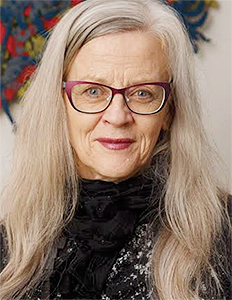 Anna Haebich is a multi-award winning author, known for her passion for research that pushes into new territories. She has researched and written about many Aboriginal topics and experiences from the past and present. Her insights are shaped by her experiences of living in Nyungar country with her partner, elder Darryl Kickett, and by her varied career in writing, visual arts practice, university research, and community engagement. Anna has received numerous honours and recognitions for her contributions. She is a Fellow of two Australian learned academies and member of university centres in Australia and Germany. She is currently a John Curtin Distinguished Professor at Curtin University.
Anna Haebich is a multi-award winning author, known for her passion for research that pushes into new territories. She has researched and written about many Aboriginal topics and experiences from the past and present. Her insights are shaped by her experiences of living in Nyungar country with her partner, elder Darryl Kickett, and by her varied career in writing, visual arts practice, university research, and community engagement. Anna has received numerous honours and recognitions for her contributions. She is a Fellow of two Australian learned academies and member of university centres in Australia and Germany. She is currently a John Curtin Distinguished Professor at Curtin University.
Jo Taylor
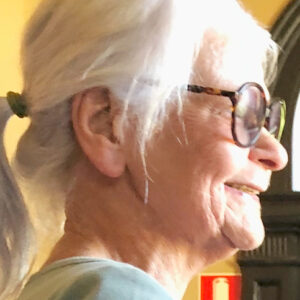 An Off-Campus Centre model was designed for training teachers in large regional towns so that they could stay in or near their home communities to study. Jo Taylor, was appointed to the Broome Centre.
An Off-Campus Centre model was designed for training teachers in large regional towns so that they could stay in or near their home communities to study. Jo Taylor, was appointed to the Broome Centre.
Eileen Willis
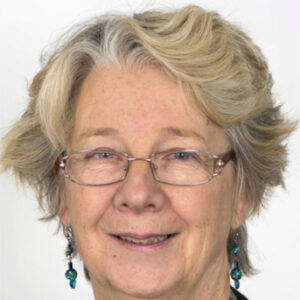 Eileen was the first co-ordinator of the Aboriginal Enclave in Western Australia, where she spent two years and three months. She then went to the South Australian College of Advanced Education (S.A.C.A.E.) Underdale Campus where
Eileen was the first co-ordinator of the Aboriginal Enclave in Western Australia, where she spent two years and three months. She then went to the South Australian College of Advanced Education (S.A.C.A.E.) Underdale Campus where
she worked with Paul Hughes (former Chairman of National Aboriginal Education Committee,) as a tutor counsellor for 18 months.
In 1980 she worked for the Institute of Aboriginal Development in Alice Springs, and was’ then seconded to the Aboriginal Northern Health Department and worked as a literacy Co-ordinator in an Aboriginal Health Workers training program for two years. The following three years she spent externally completing a Masters degree in Education, examining the problems of the delivery of literacy to Aboriginal health workers on settlements in the Northern Territory. This led to her working in the Central Australian Community College lecturing in child development.
Norma Morrison
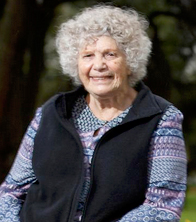 Norma Morrison assisted Doug Hubble with the Aboriginal External Education program.
Norma Morrison assisted Doug Hubble with the Aboriginal External Education program.